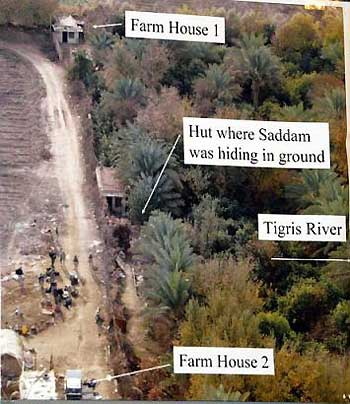

Army issued a special deck of playing cards to troops, showing photos, names and job titles of high-value targets. To help troops identify the leaders of the brutal regime, most of whom had also quickly dispersed after the invasion, the U.S. However, most Americans and their allies cheered the toppling of Saddam’s regime, which had been responsible not only for the invasion of Kuwait and the Persian Gulf War in 19, but for violent suppression of Shia and Kurdish uprisings, ruthless chemical-gas attacks on its own civilians and the murderous repression of all political dissenters. Instead, the nation of Iraq would face years-if not decades-of instability, strife and sectarian violence. Soon after the president prematurely declared “Mission Accomplished” on an aircraft carrier on May 1, it became clear that the invasion had done nothing to advance the war on terror, nor would it help establish a bulwark of democracy in the region. Many critics suspected ulterior motives, ranging from oil reserves to Bush’s declining poll numbers. Allegations connecting Hussein to al Qaeda terrorists also went unsupported. Claims by the Bush administration that the brutal dictator was developing weapons of mass destruction ultimately proved false. Operation Red Dawn: a bright spot in a murky warįew moments in the Iraq War were as widely celebrated as the capture of Saddam Hussein.įor one thing, the invasion had been unpopular from the start, both at home and internationally. READ MORE: The Death-Defying Challenges of Military Logistics in IraqĮric Maddox receiving a Legion of Merit. His central role in Saddam Hussein’s capture earned Staff Sergeant Maddox a Legion of Merit, the National Intelligence Medal of Achievement, the Defense Intelligence Agency’s Director’s Award and the Bronze Star. Instead, over the course of more than 300 interrogations in the Iraqi city of Tikrit, he used his ability to talk and listen with empathy-and to influence people who had no reason to trust him. But ultimately, plunging out of planes was not how he made history. Fearless and hardworking, Maddox made jumpmaster and became a Ranger, a designation notorious for its grueling training. The fine art of verbal communication certainly wasn’t the kind of military action Maddox had envisioned when he heeded a vague sense of patriotic calling in his senior year at the University of Oklahoma and enlisted with the 82 Airborne Division. His secret weapon for helping pinpoint Hussein’s exact location was much sneakier: He used empathy. Eric Maddox, the Army interrogator connected to the Delta force pursuing Hussein, played a pivotal role in the operation-considered the biggest triumph of the Iraq War-with no trigger pulling, no drone strikes, no enhanced interrogation methods. Yet all that firepower would have been useless, had it not been for months of meticulous intelligence gathering and canny questioning. military historians, the team that apprehended Hussein boasted 600 soldiers, two dozen tanks and a company of Apache attack helicopters. Bush later kept as a trophy) and a suitcase stuffed with $750,000. He had an unloaded Glock pistol (which President George W. troops extracted Hussein, disheveled and disoriented, from a hole in the ground near his home town of Tikrit.

Nine months later, in an operation code-named “Red Dawn,” U.S. The target? The nation’s deposed dictator, Saddam Hussein, who escaped Baghdad when the capital fell. American soldiers in the 4th Infantry Division stand over the opening of the 'spider hole' where Saddam Hussein was captured in Ad Dawr, Iraq in 2003.Īfter coalition forces invaded Iraq in March 2003 and toppled its government, the U.S.


 0 kommentar(er)
0 kommentar(er)
